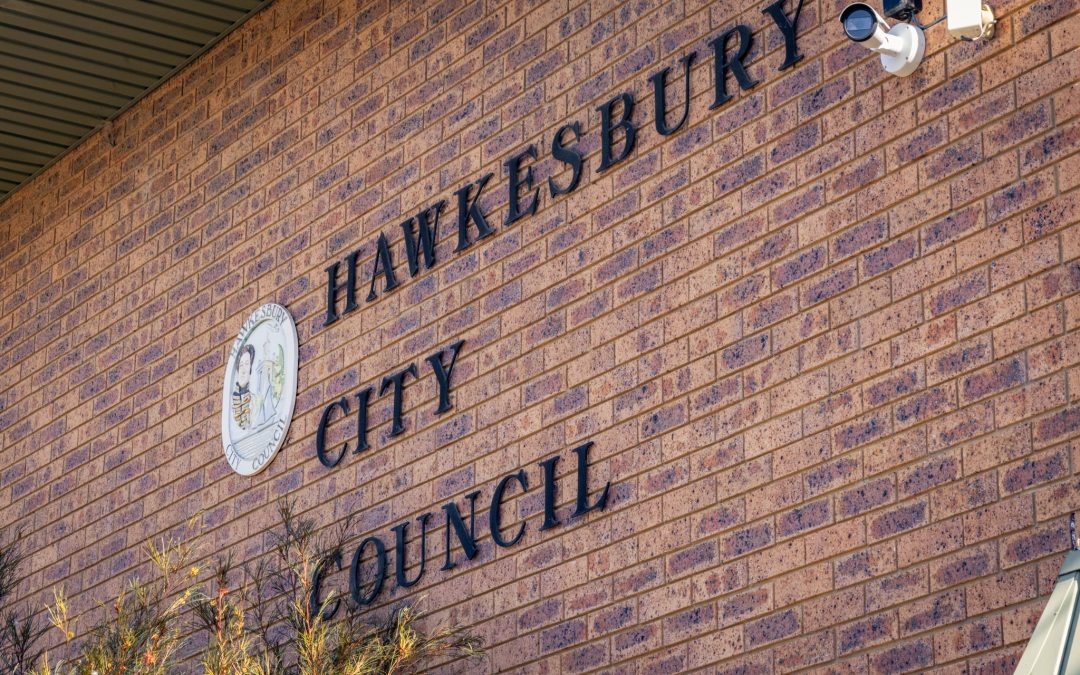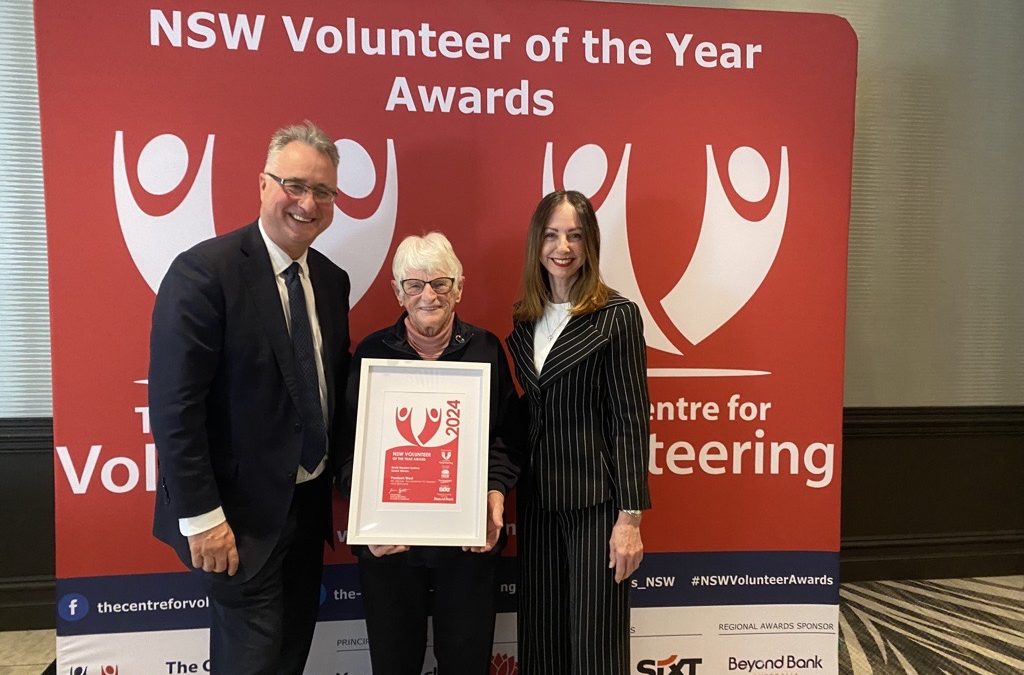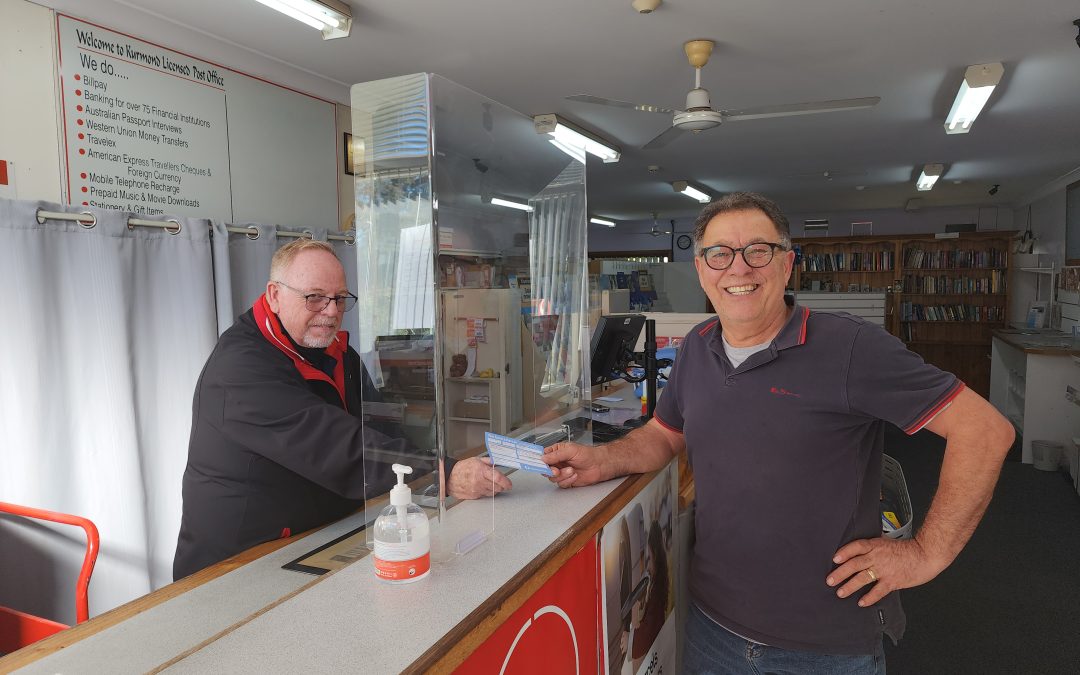Hawkesbury Post contacted all...


Hawkesbury Post contacted all...

In a heartwarming recognition of community...

After more than two decades of dedicated service, the...

If you are unlucky enough to suffer a sudden heart attack, every minute makes a difference and if there happens to be a defibrillator handy it can literally mean the difference between life and death – but what do you do if you live in a remote community?
This was the question on Macdonald Valley resident Sophie Wills’s mind when she founded the Community Defib Project following the untimely death of a family friend.
“I can’t remember a time when I wasn’t aware of how far away from help in a medical emergency we are as a community,” Sophie told the Post.

Sophie Wills with Carpet Hughes – Managing Direct of the DefibShop, Intensive Care Paramedic and Board Member Community Defib Project
“The idea of community defibrillators had been discussed for a long time in our area, ideas to include the ferries were suggested, but it wasn’t until Wisemans Ferry Bowling Club president, and close family friend, Phil Major suffered a cardiac arrest and tragically passed away that I decided enough was enough.
“I remember waiting for help for Phil for a very long time and decided that no one should ever feel this helpless. I was called on by friends to assist, but even as a ‘training paramedic’ at the time, I couldn’t do anything else to help without a defibrillator/AED.
“I went to local Dr Paul Simpson in the following weeks wanting to know how I could get a community defibrillator for the area. The ironic part is that there was already a defibrillator at the bowling club. It then became apparent that there were many units already within the community that were ‘hidden’ and needed to be available for the community.”
Now a fully trained paramedic and RFS volunteer, 22-year-old Ms Wills is also chairperson of the Community Defib Project, which since the first unit was placed in 2019, has vastly improved community access to defibrillation in Wisemans Ferry and surrounding areas. This has been helped with a $35,000 NSW government My Community Project grant to kick-start the community-based public access defibrillation scheme.

One of the AED devices, this one at Wisemans Ferry
Ms Wills now juggles 30 volunteers, six communities, 22 AEDs, and has a full-time paramedic’s position outside the Macdonald Valley.
She has also been awarded the NSW/ACT 7NEWs Young Achiever Awards ‘NSW Ministry of Health’s Healthier Communities Award’.
The Defib program has been a collaboration between Western Sydney University, the Defib Shop and passionate community members, and now Ms Wills wants to take it to more areas of the Hawkesbury.
“We didn’t know what to expect following Defib installs,” said Sophie.
“We hoped that the community would be confident enough to access the AEDs in the event of the sudden cardiac arrest. We never expected the AEDs to be accessed for other medical reasons while they waiting for an ambulance!
“Less than 48 hours following the installs of AEDs on the ferry in the Macdonald Valley, a community member accessed the AED for an elderly family member who was feeling dizzy. A few months later another community member accessed the AED for chest pain. We never thought that this would happen but the best part about this is that whilst the people who were unwell were waiting for help, if they did have a sudden cardiac arrest they would have the best chance of surviving as they had an AED on standby, which is great,” Sophie said.

Map of the current AED rollout around the Macdonald Valley area
A defibrillator – an Automated External Defibrillator (AED) – is a life-saving device that can be used by any member of the public to save the life of someone who suffers a sudden cardiac arrest. A sudden cardiac arrest essentially refers to someone suddenly becoming unconscious and stopping breathing because their heart has suddenly stopped.
This is a life-threatening emergency that, without intervention, will have poor outcomes.
During a sudden cardiac arrest, with every minute that goes by without a defibrillator, the victim’s chance of survival is reduced by 7-10 per cent. This translates to no more than 10 minutes to access a defibrillator for a chance of survival. The problem is, many rural areas are much further than 10 minutes from an ambulance service.
“Currently we have more than 22 community AEDs installed. This includes Wisemans Ferry, Lower Macdonald, Central Macdonald, Lower Portland, Leets Vale (Hills), Maroota (Hills), Gunderman (Central Coast) Sackville and St Albans. We now have more than 30 volunteers and we’ve received fantastic feedback from the community,” Ms Wills said.
“Our organisation not only looks after the installation of these units but places emphasis on the education that is required to ensure that this project is successful. We have developed maps of the installed community AEDs, fridge magnets and information packs for the community. We have also provided training for all members of the community.
“We have a committee dedicated to each community, one of which is St Albans. The St Albans committee is led by local advocate and community member Gillian Jessup and includes passionate community members Lisa Wyatt and Kate Stuart,” she said.
“Our vision is to ensure that every member of the community from St Albans to Higher Macdonald along Upper Macdonald Road and St Albans to Mogo Creek along Wollombi Rd is within no more than 10 minutes from an AED,” Ms Wills said.
“This would mean installing community AEDs at points which are spaced 10 minutes apart. This significantly improves the potential that residents have to save a life of someone who suffers a sudden cardiac arrest.
“We would now also like to see this program extended in other areas of the Hawkesbury such as Bilpin and Kurrajong to create heart safe communities across the Hawkesbury. We have also had interest from community members in Cattai and Kurrajong but plans are underway to implement the project to its full capacity across St Albans.”
Ms Wills does point out that we can all play a part in making sure heart attacks are less common in the first place.
“Heart disease is a major cause of health problems and death in Australia. Poor life-style choices such as smoking, a poor diet, alcohol consumption, and not enough exercise, increases your risk of heart disease and ultimately of suffering a sudden cardiac arrest.
“We need to become more aware of the risks as a community and more proactive as a solution. Knowing where your nearest AED is, is just the start of the solution.”
The Community Defib Project is seeking support to secure funding to install more of these life-saving devices in the Hawkesbury. To offer assistance and make donations towards defibrillators, training, resources, hardware, cabinets and signage, contact Sophie Wills via sophie@communitydefibproject.org.au
For more information about the Community Defib Project, visit www.communitydefibproject.org.au
As you’re here…
With 2021 offering new hope we can commit to another year of quality reporting. Support Hawkesbury Post from one dollar, right here.